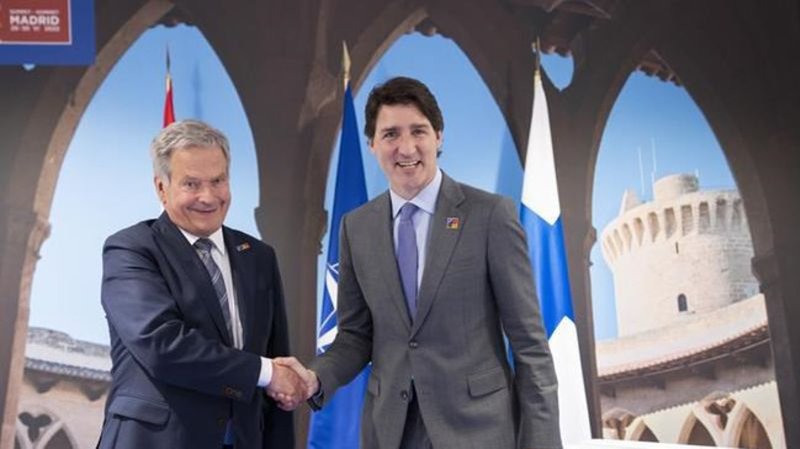
Canada first ally to ratify NATO membership bids from Sweden, Finland
OTTAWA — Canada has become the first country to ratify Sweden and Finland’s request to join NATO, bringing the two countries closer to full membership.
The Prime Minister’s Office says Justin Trudeau met with Finland’s president, Sauli Niinistö, and Sweden’s prime minister, Magdalena Andersson, at the NATO Summit last week.
In a statement, Trudeau says Canada champions the alliance’s open door policy for any European country in a position to “advance the commitments and obligations of membership.”
The Finnish and Swedish ambassadors submitted official letters of application to NATO on May 18, and Canada’s federal cabinet issued orders-in-council on May 26 authorizing the foreign affairs minister to ratify accession protocols for both countries.
